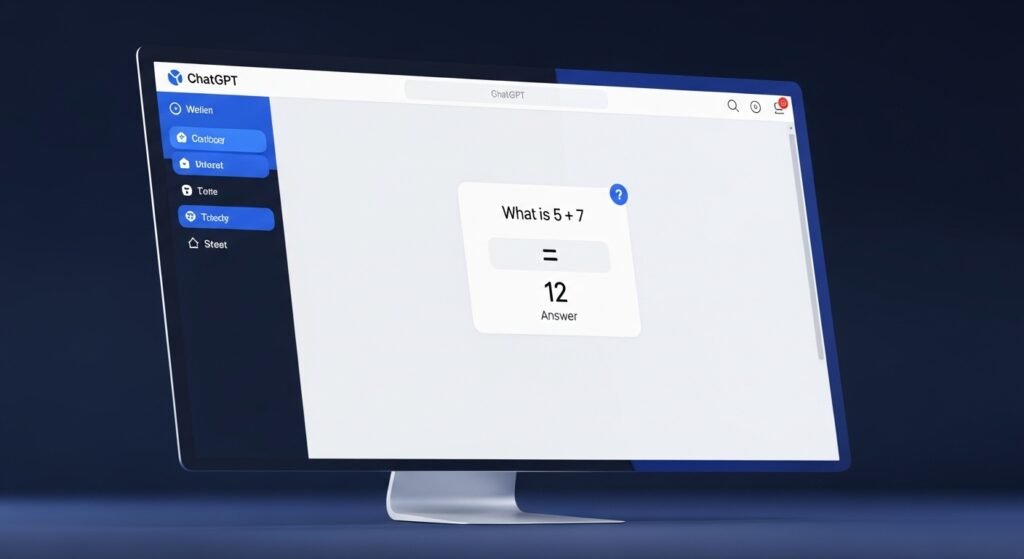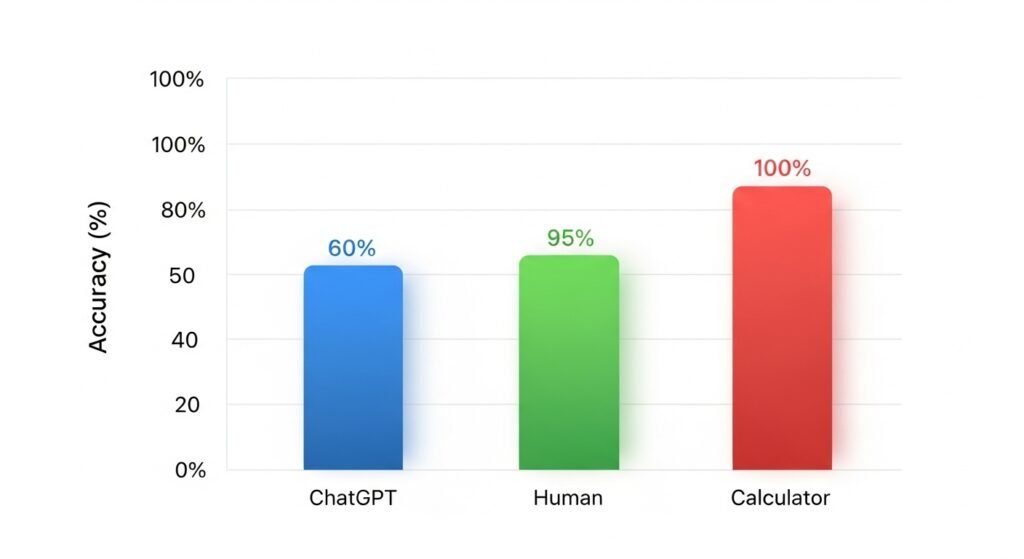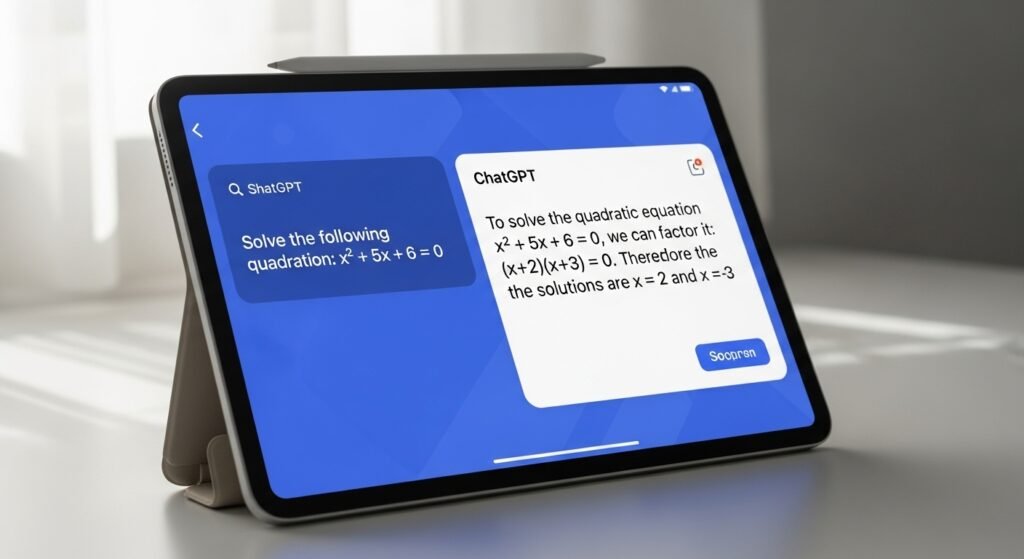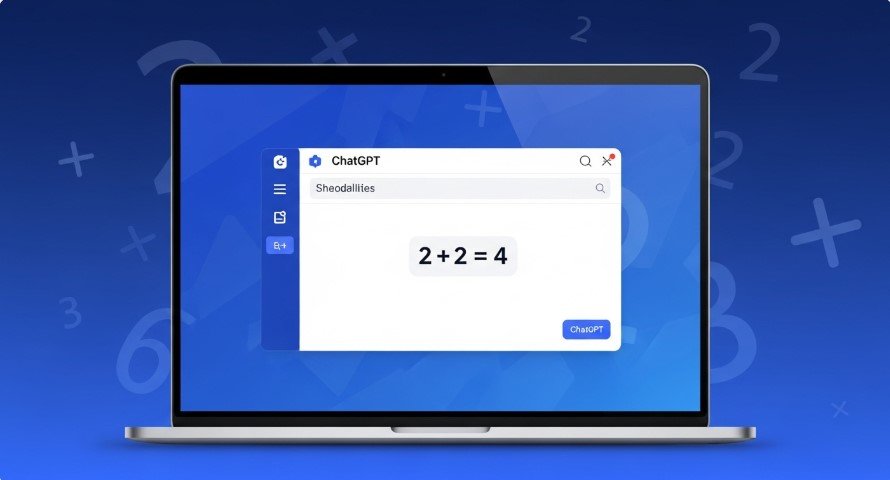ChatGPT, developed by OpenAI, is known for its conversational abilities. But can it handle math? This question interests students, educators, and professionals. In this article, we explore ChatGPT’s math capabilities, limitations, and recent improvements. Whether you need quick calculations or complex problem-solving, we’ll clarify what ChatGPT can do. Our goal is to provide clear, useful insights to help you use ChatGPT effectively for math tasks.

Can ChatGPT Handle Basic Math?
ChatGPT excels at basic math tasks. It can perform arithmetic operations like addition, subtraction, multiplication, and division. For example, asking “What is 5 + 7?” yields the correct answer: 12. It can also compare numbers, such as confirming that 9 is greater than 5. Simple word problems, like calculating speed from distance and time, are within its capabilities. These strengths make ChatGPT a handy tool for quick calculations or explaining basic math concepts.
- Examples of Basic Math Tasks:
- Addition: 5 + 7 = 12
- Subtraction: 10 – 3 = 7
- Comparisons: 9 > 5
- Word Problems: “A car travels 60 miles in 2 hours. What’s its speed?” (Answer: 30 mph)
Learn how ChatGPT can assist with other tasks, like writing performance reviews.
Why Does ChatGPT Struggle with Complex Math?
ChatGPT is a language model, not a math engine. It relies on patterns in text data, not mathematical rules. This causes issues with complex problems requiring logical reasoning or multiple steps. A 2023 study by Paulo Shakarian at Arizona State University found ChatGPT’s accuracy on math word problems to be below 60%. For example, it once incorrectly stated that 1234.12 equals 1243.12, showing its weakness in precise comparisons.
Key Reasons for Struggles:
- Language-Based Design: Built for text, not calculations.
- Limited Math Training: Training data lacks deep mathematical content.
- Transformer Architecture: Predicts next words, not logical steps.
- Probabilistic Nature: Generates likely answers, which may be wrong.

How ChatGPT Processes Math
ChatGPT doesn’t “understand” math like humans. It uses patterns from its training data to generate responses. For example, it knows “9 is larger than 5” because it’s seen similar comparisons. However, it lacks deep mathematical reasoning, leading to errors in complex tasks like calculus or multistep word problems. This reliance on text patterns, rather than explicit rules, limits its reliability for advanced math.
Example Error: When asked, “Which is larger, 1234.12 or 1243.12?” ChatGPT once incorrectly answered they were equal, showing its struggle with precision.
Improvements in ChatGPT’s Math Abilities
Recent updates have enhanced ChatGPT’s math skills:
- GPT-4 (March 2023): Scores 83% on International Mathematics Olympiad exams, compared to 13% for earlier models.
- o1 and o3-pro (2024-2025): Designed for deeper thinking, these models perform at PhD levels in math and science.
- Wolfram Plugin: Integrates with Wolfram Alpha for accurate advanced calculations, like integrals or differential equations.
- January 2023 Update: Improved factuality and math capabilities, reducing errors even when users challenge answers.
These advancements make ChatGPT more reliable for math, especially with plugins or newer models.
Compare ChatGPT’s capabilities with other AI tools in ChatGPT vs. Grok.
Best Practices for Using ChatGPT for Math
To use ChatGPT effectively for math:
- Stick to Simple Tasks: Use for basic arithmetic or concept explanations.
- Verify Answers: Double-check results, especially for complex problems.
- Use Plugins: Pair with Wolfram Alpha for advanced math.
- Access Newer Models: GPT-4 or o1 offer better performance (available via ChatGPT Plus).
- Avoid Critical Tasks: Don’t rely on it for high-stakes calculations.
Frequently Asked Questions
Is ChatGPT reliable for math?
It’s reliable for basic math but less so for complex problems. Accuracy is below 60% for word problems. Newer models like GPT-4 improve this.
Can ChatGPT solve algebra?
Yes, for simple equations, but it may err on complex algebra. Use it for learning, not final answers.
How accurate is ChatGPT for math?
Early versions had low accuracy (below 60%). GPT-4 and o1 models score up to 83% on advanced tests.
What plugins help with math?
The Wolfram plugin boosts accuracy for advanced calculations.
How have ChatGPT’s math skills improved?
GPT-4, o1, o3-pro, and plugins like Wolfram Alpha have enhanced its ability to handle complex math.
See how to use ChatGPT for other tasks, like UX research planning.
Conclusion
ChatGPT can handle basic math tasks like arithmetic and simple word problems, making it useful for quick calculations or learning. However, its accuracy drops below 60% for complex problems due to its language-based design. Newer models like GPT-4 and o1, along with plugins like Wolfram Alpha, have improved its math capabilities significantly. Always verify answers and use plugins for advanced tasks. As AI evolves, ChatGPT’s math skills will likely keep improving, offering more value for students and professionals.

